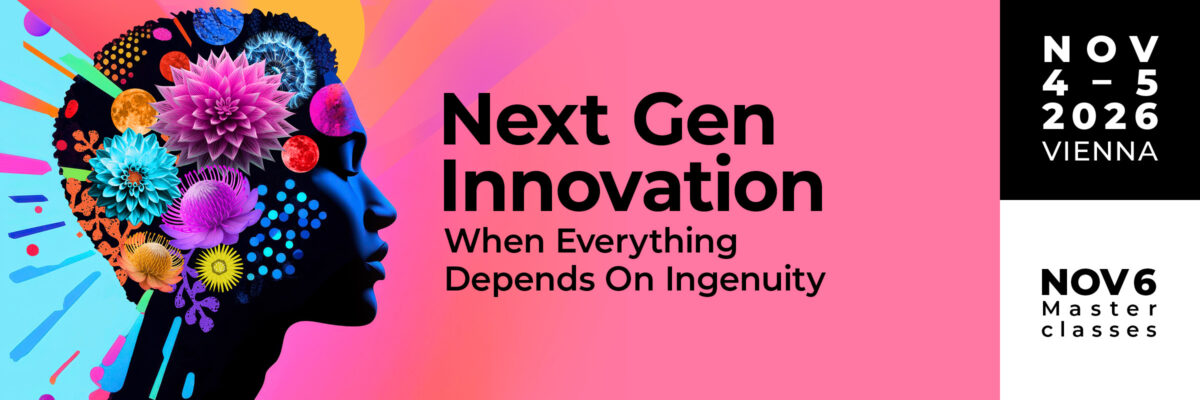
All that glitters is not gold
Getting entrepreneurial spirit wrong hinders companies’ performance
What if entrepreneurial spirit was a delusion?
In a recent post launching the next Global Peter Drucker Forum – Performance That Matters – Julia Kirby and Richard Straub pose a series of questions related to what Peter Drucker called the “spirit of performance”. Kirby and Straub ask: how to embed the spirit of performance in organizational culture, in particular in large organizations?
This is a field I know well. It is true that large companies, whose economic and societal contribution is undeniable, are nowadays characterized by cumbersome ways of work which, according to the popular cliché, makes them look like an “administration”. There is little risk-taking, workers are stuck in long-held habits and lots of bureaucracy. They should therefore be revitalized by an injection of entrepreneurial spirit.
But beware of simplistic diagnoses, which may take us away from what would be really useful. Observing counter-productive ways in which organizations work today helps understand what can be wrong with a performance mindset. Successful experiences, on the other hand, provide clues that ought to inspire action across business sizes and sectors.
The spirit of performance and its shadows
Firstly, it is worth being aware of the ideological elements involved in the notions of performance and entrepreneurship.
Performance, understood in the broad sense of “succeeding in what one is trying to do” tends to overlook the conditions for success, which are not always present, or well distributed, or beneficial in the long term. Pushing for performance generally feeds a system of competitive selection among people. Oddly called “meritocracy”, it undermines collaboration while producing an increasingly unbearable mental burden for individuals, as well as growing inequalities and a feeling of exclusion which in turn fuels social and political anger.
Promoted in particular by a libertarian lobby hostile to state regulation and taxes, the “entrepreneurial spirit” hails the enterprise as the ultimate model. But other forms of individual or collective action such as research, citizenship, community, education, care, creative expression etc. produce much social value as well. More people are becoming disillusioned with the enterprise, with capitalism and its effects on society. “Capitalism has not understood community,” Brian Eno says, leaving us unable to solve our climate crisis. At a time when various attempts try to reconnect business to the common good (through mission-based companies, corporate democracy…), it is healthy to take entrepreneurialism with a grain of salt.
Nevertheless, let’s accept the idea that promoting a “spirit of performance” would be good for companies, especially large ones. This spirit would allow for more innovation, higher quality, better results. Who wouldn’t want that? Organizations are doing everything they can to stimulate it. The problem is that they do it badly.
Large organizations unintentionally, but resolutely, prevent the spirit of performance.
Mechanistic thinking and corporate incoherence explain why it is so difficult to grow an entrepreneurial mindset in large organizations.
Firstly, the effort to do so, either focused on the individuals, or on the organizational structure, is often misguided. A company may try to stimulate people’s aspirations and behaviours through incentives, rewards, and performance management. These neglect the relational and ecosystemic aspects of entrepreneurialism. Or it may design new organizational schemes, set up new governance, which perpetuates the illusion that structure determines people’s way of thinking and acting. This line of thought stems from a mechanistic approach to organizations. But they are living systems, not machines. Instead, it is their identity which drives people’s mindset and behaviours.
The other reason is that a large company often contradicts itself. Alongside injunctions to innovate, and to challenge the status quo, it perpetuates an increasingly tight normative framework, an obsolete system of hierarchical domination, and territorialism. This obsession of control gives a greater power to gatekeepers than to connectors. In a culture of compliance and competition, it is rational to avoid taking risks. Moreover, diversity is often managed in a “check box” manner, losing its potential to stir collective intelligence in the service of the company’s major challenges.
At a company that takes pride in disrupting its industry, I recently interviewed several employees ahead of a workshop: “We feel like minions”; “Everything I do has to be vetted by three levels of management”; “We’re being shot down just for asking questions”… I wasn’t even surprised by what I heard: it is so common. Yet, it is possible to do otherwise.
How to regain a spirit of performance in large organizations
I have witnessed and acted on several large-scale people mobilization initiatives within large organizations, with truly breath-taking results. The major source of performance is human agency: the capacity, ability and willingness of individuals to act. This cannot be easily triggered by others. Intrinsic motivation is a key element of success. It is possible to create the right conditions for agency to flourish and to spread from peer to peer.
A deliberate use of networks, as technology and operating principles, facilitates connections and access to information within the system. They enrich what it knows about itself and its environment, making it more capable of taking swift, relevant action even in complex situations.
Business can also learn enormously from the dynamics of social activism. Around a shared cause that speaks to people’s values and benefit the enterprise, “corporate activism” allows to set in motion employee collectives of all levels, gathered in communities of intent and action. Agency, but also social capital and trust can grow from there, inspiring movement and sustainable performance.
Yet, this can only happen through a more modern form of leadership: less individual omnipotence, more collective enablement. Sparking the entrepreneurial spirit begins with reinventing what leadership is and what it does. The challenge is worth the effort.
About the author:
Celine Schillinger is an award-winning French entrepreneur, change practitioner, and consultant. She has over 30 years of field experience across several continents. In 2017, she was knighted by the French government for her workplace change efforts. Lessons from her journey in change are captured in Celine’s first book, published in May 2022: of Dare to Un-Lead: The Art of Relational Leadership in a Fragmented World

